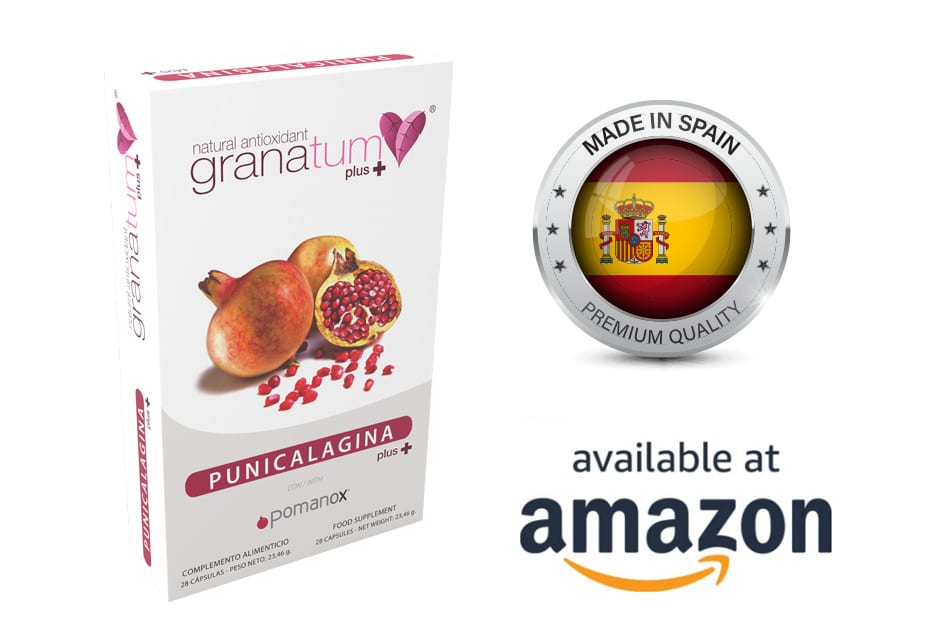
COUNTRIES: Spain
CONDUCTED BY: Toxicology Unit. Institute of Bioengineering, University Miguel Hernandez. Elche- Alicante. Spain; Biochemistry and Cell Therapy Unit. Institute of Bioengineering, University Miguel Hernandez. Elche (Alicante); Immunology Division, Biotechnology Department, University of Alicante. San Vicente del Raspeig (Alicant), SPAIN; Immunology Division, Biotechnology Department, University of Alicante. San Vicente del Raspeig (Alicant), SPAIN;
PUBLISHED ON: Nutrition

RESEACH:
Abstract
The aim of the present study was to assess the effects of pomegranate juice on the level of oxidative stress in blood of endurance-based athletes. Pomegranate juice is rich in polyphenols, conferring it a higher antioxidant capacity than other beverages with polyphenolic antioxidants.
A randomized, double-blind, multicenter trial was performed in athletes from 3 different sport clubs located in the southern region of Spain. Plasma oxidative stress markers (protein carbonyls and malondialdehyde (MDA)) as well as C-reactive protein and sE-selectin were measured.
A total of 31 athletes participated in the study, supplemented during 21 days with 200 ml/day pomegranate juice (PJ) (n=10), 200 ml/day pomegranate juice diluted 1:1 with water (PJD) (n=11) and a control group not consuming pomegranate juice (C) (n=10). Nine volunteers were excluded due to protocol violations (n=4 in the PJ group and n=5 in the PJD group) since they did not respect the 24 h of rest before the last blood test.
The control group increased levels of carbonyls (+0.7 ± 0.3 nmols/mg protein) and MDA (+3.2 ± 1.0 nmols/g protein), while pomegranate juice and PJD groups maintained or decreased their levels, respectively. On the other hand, lactate levels increased in the pomegranate juice group (from 10.3 at day 0 to 21.2 mg/dL at day 22).
A non-significant decrease was detected in sE-selectin and C-reactive protein in the groups consuming pomegranate juice. Consumption of pomegranate juice during 21 days improves MDA levels and carbonyls, decreasing the oxidative damage caused by the exercise.
YEAR: 2015

